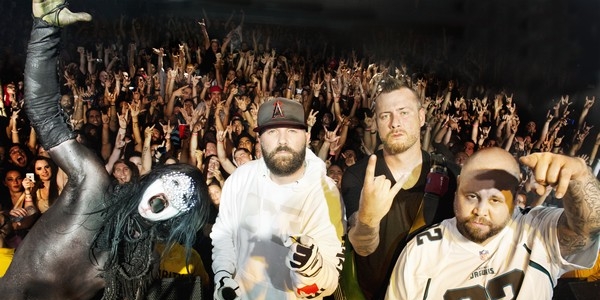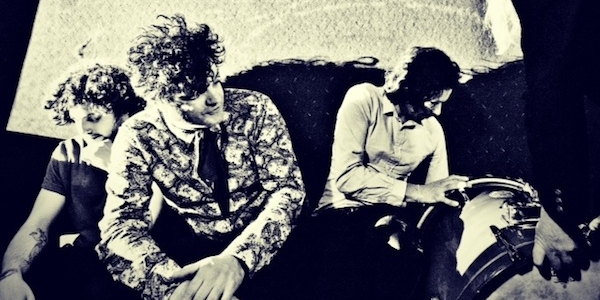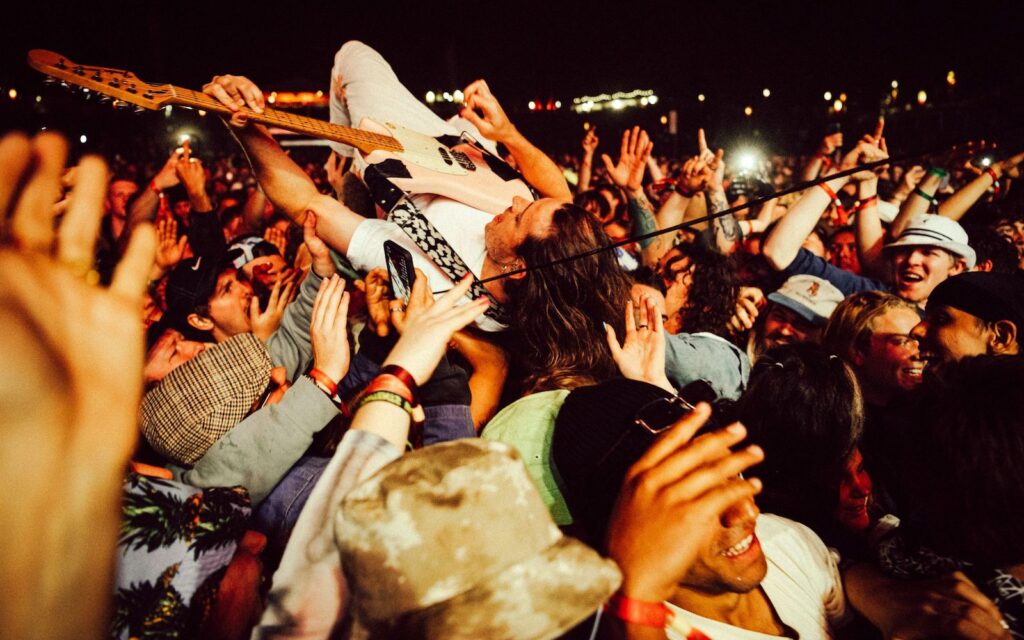“It was redeeming,” guitarist Wes Borland says of the band’s last Australian visit. “And it kind of felt like us resurrecting ourselves, in a way, with what had happened at the Big Day Out, with the young girl’s death, as well as Australia and us.” The sense of sadness in Borland’s voice as he speaks of the tragic 2001 death of Big Day Out concertgoer Jessica Michalik is palpable.
“When I think about the two combined, Australia has always been tied to grief in the past, and it was nice to kind of obliterate that and meet Jessica’s family, meet the friends that had been there at the show with her when she died, and in some ways the whole thing has come full circle for us to forgive ourselves and make new memories and have the air cleared. And now this’ll be our first headlining tour of Australia that is not linked to a festival, so it’s nice to kind of hit the reset button, in a way.”
When Limp Bizkit hits Australian stages this month, there’s a chance audiences will hear some new material to go along with the classics: they’re hard at work on forthcoming album Stampede of the Disco Elephants, which is due for release in January.
“The album’s not out yet, but we’ve released one single [Ready To Go] and we may be releasing another single,” Borland says. “We’re working very hard on it every day. Fred [Durst] has a home studio and I have a home studio that are very well equipped, and we’re deep into a postproduction area of the album, working on the icing on the cake right now.”
Following the departure of DJ Lethal, that particular area of sonic real estate has been commandeered by Borland, although the change hasn’t particularly shifted the dynamic of the writing process. “We’ve always written as a four-piece, or drums, bass and guitar with Fred conducting or producing, and Lethal always came in after the fact, after almost everything was finished, so it’s not a big difference to how we wrote before.”
A fiercely individual guitarist, Borland was one of the first wave of groove-and-texture-oriented metal guitarists to embrace the seven-string guitar, and yet he was also one of the first to abandon the seven in favour of six or even four strings. And he has no intention of dipping into the current trend of ultra-low-tuned eight-string guitars, Meshuggah-style.
“I like less strings. I even play four string guitars, and I’ve found that once you get into guitars that move away from what’s generally accepted and what the generally standard model of the guitar is, you lose out on all this shared technology. You isolate yourself. People are like, ‘Oh, this is an eight-string, it sounds so heavy,’ but dude, you can put one extra heavy string on a one-string guitar and it’ll sound the same. There’s all sorts of things that you miss when you limit yourself to something that’s that specific. So that’s why I got away from using guitars like that. It was just too much. I just didn’t need all of that, and I just found I got over that ‘I’m jacking off ten times a day, I’m 18 years old and full of testosterone’ part of my life. It’s not about how big the tyres on my truck are. I just started looking at it in more of an adult way, I guess, as far as guitar playing goes – says the guy who still dresses like a moron in costumes on stage!”
BY PETER HODGSON







